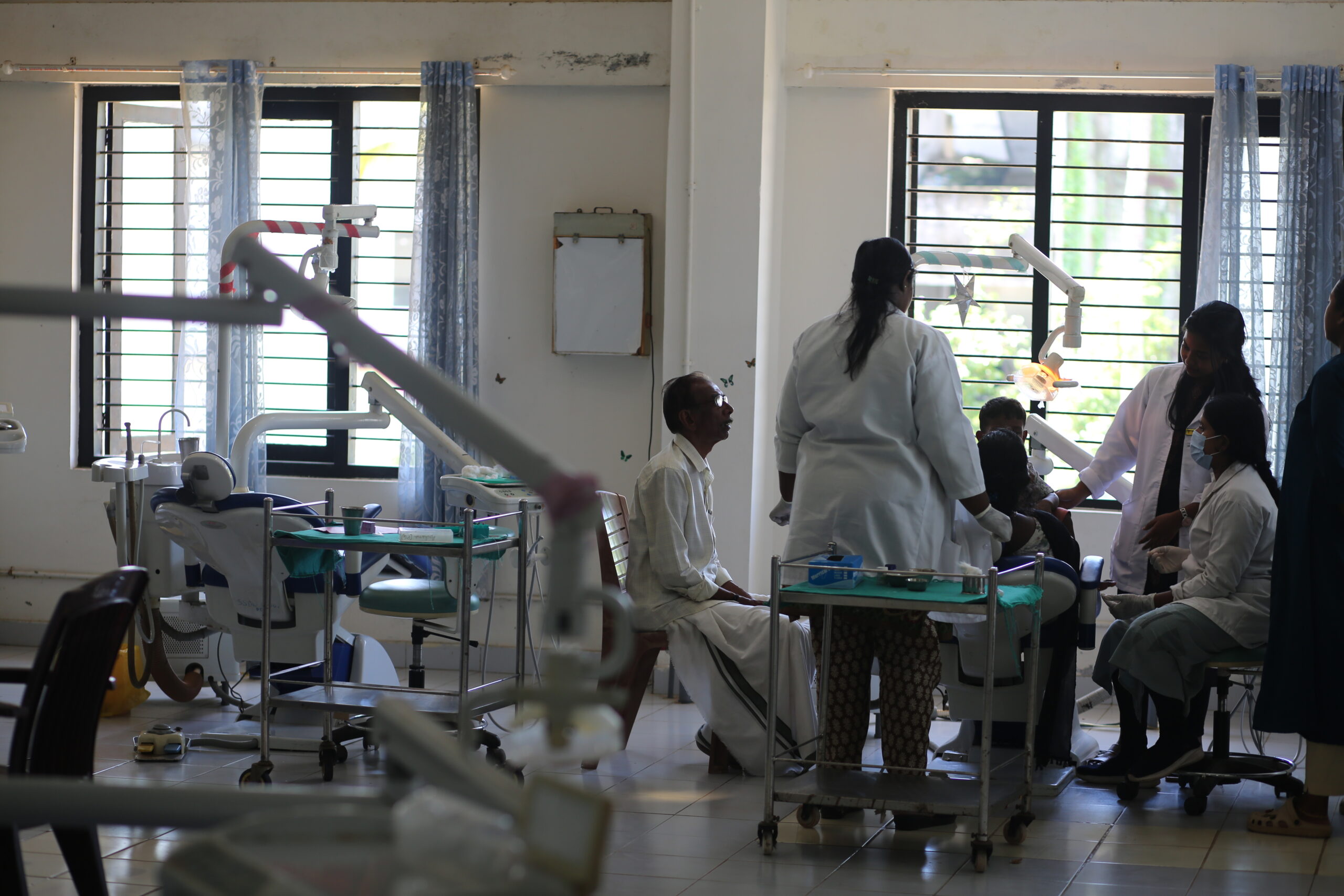

The Department of Oral Pathology and Microbiology is your gateway to the microscopic world of oral health. Here, you'll unravel the mysteries behind diseases by learning to analyze oral tissues and identify abnormalities. The curriculum dives deep into oral pathology, equipping you to diagnose conditions like pre-cancerous lesions and inflammatory diseases. Oral microbiology becomes your playground as you explore the diverse bacteria within the mouth, both beneficial and harmful. Mastering techniques to isolate and identify these microbes is key, as understanding their role in gum disease and bad breath is crucial for developing targeted treatment plans. Our advanced microscopy suite allows you to visualize tissues at high magnification, while the microbiology laboratory provides hands-on experience culturing and analyzing oral bacteria. The department doesn't stop at theory – you'll have the chance to participate in research projects, bridging the gap between scientific discovery and clinical application. By the time you graduate, you'll possess the expertise to diagnose and manage oral diseases with precision, making you a valuable asset in the field of oral healthcare.

Oral pathology and microbiology is a fascinating field that combines two crucial aspects of oral health: understanding diseases of the mouth at a microscopic level (oral pathology) and exploring the diverse world of microorganisms that thrive within the oral cavity (oral microbiology).
Oral Pathology:
Oral Microbiology:
The Intersection:
The beauty of oral pathology and microbiology lies in their interconnectedness. By understanding the microscopic changes associated with diseases (oral pathology) and the role of oral bacteria (oral microbiology), dental professionals can:
A career in Oral Pathology and Microbiology offers a unique blend of intellectual challenge, research opportunities, and the potential to significantly impact patient care.
Become a Highly Sought-After Specialist: Oral pathologists and microbiologists are in high demand, particularly in academic institutions, research laboratories, and specialized dental practices. This translates to strong job security and competitive salaries.
Pursue a Fulfilling Research Career: This field is at the forefront of advancements in oral healthcare. You can delve into research projects, exploring the connection between oral bacteria and disease, developing new diagnostic tools, or contributing to the discovery of novel treatment strategies.
Educate the Next Generation of Dental Professionals: Your expertise is valuable in academic settings. As a professor or lecturer, you can inspire and educate future dentists on the importance of oral pathology and microbiology in patient care.
Bridging the Gap Between Science and Practice: You can act as a bridge between scientific discovery and clinical application. Your knowledge helps translate research findings into effective treatment strategies that benefit patients directly.
Contribute to the Evolution of Dentistry: By contributing to research and development in this field, you'll play a vital role in shaping the future of dentistry. Your work might lead to new diagnostic techniques, targeted therapies, and ultimately, improved oral health outcomes for patients worldwide.
Sri Sankara
Typically replies within an hour
Can I know more about the courses?
WhatsApp Us
🟢 Online | Privacy policy
WhatsApp us
